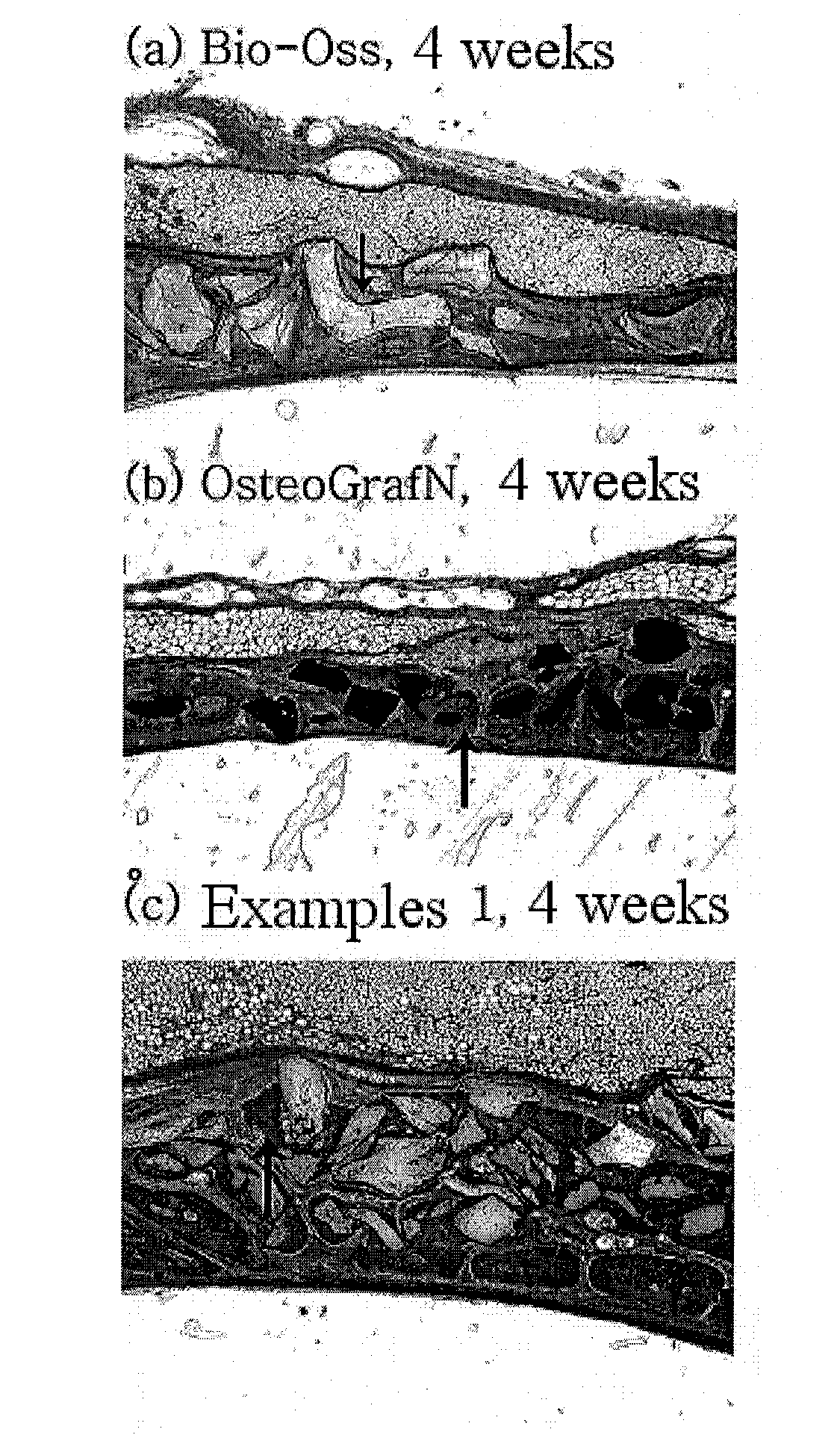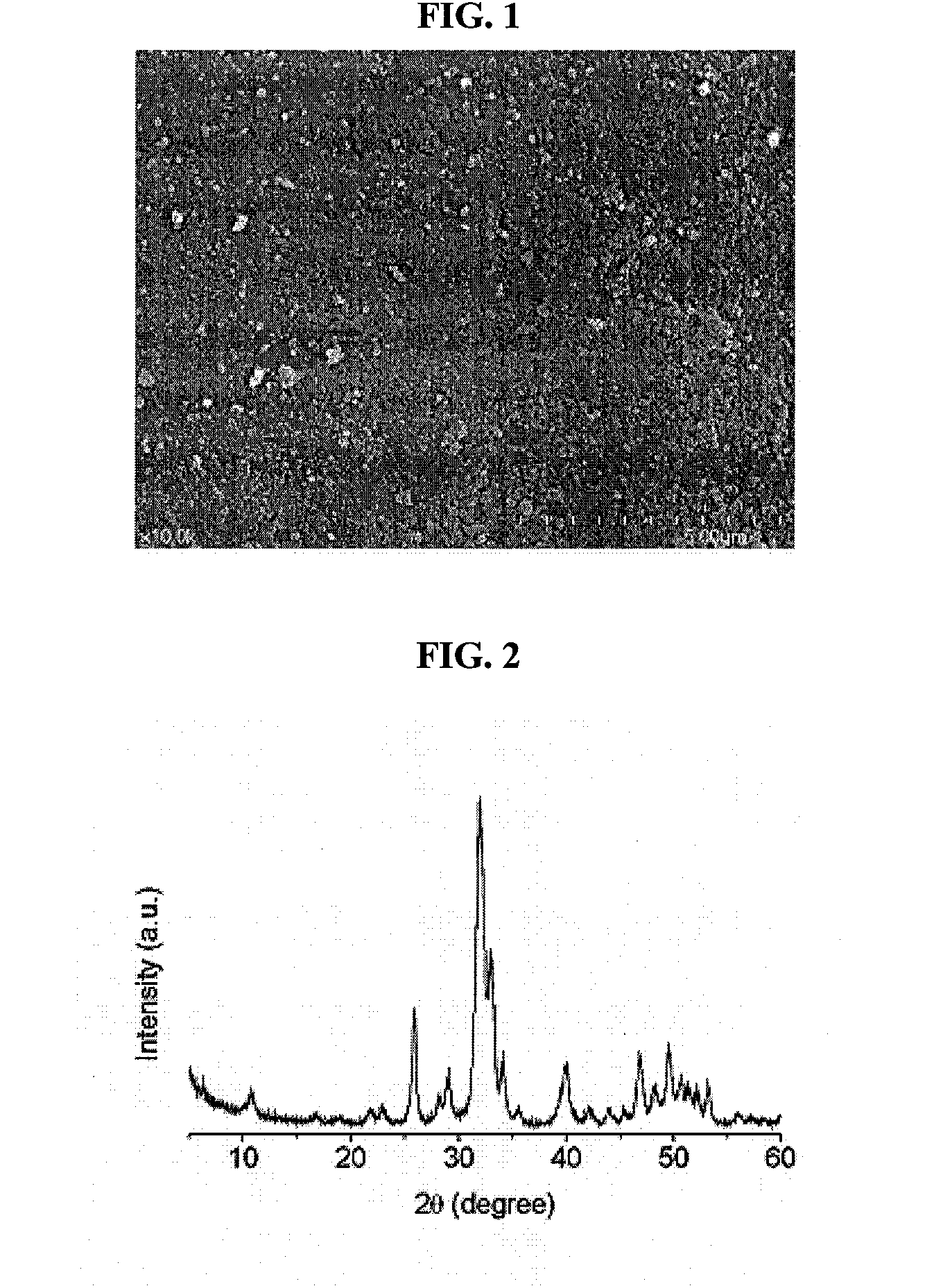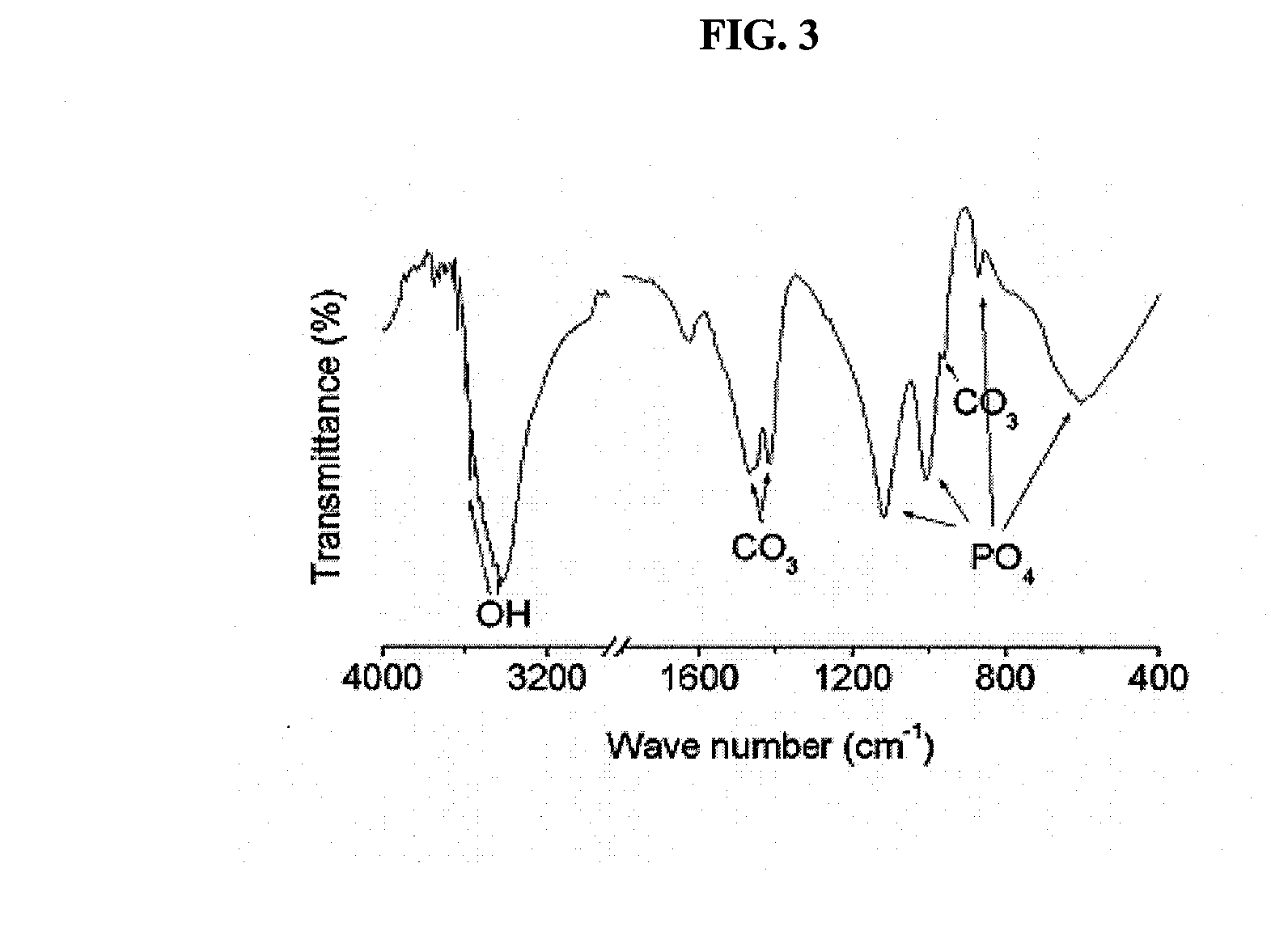Method for preparing a prion-free bond grafting substitute
- Summary
- Abstract
- Description
- Claims
- Application Information
AI Technical Summary
Benefits of technology
Problems solved by technology
Method used
Image
Examples
example 1
Preparation of Bone Graft Substitute
[Pretreatment and Grinding Step]
[0030]A bovine femoral bone was cut to a size of 5 cm3 using a bone cutter. The cut bone pieces were immersed in deionized water for 24 hours to remove blood components present in the bone. The bone pieces washed with deionized water were boiled for 72 hours while replacing the deionized water at 12-hr intervals, thus primarily removing lipids and proteins present in the bones. The bone pieces from which the lipids and proteins have primarily been removed were completely dried in an oven at 60° C. for 24 hours, and then ground to a size of less than 0.7 mm using a mill.
[Defatting Step]
[0031]To 1 g of the ground bone powder, 20 ml of a mixed solvent of chloroform and methanol (1:1 v / v) was added and the solution was shaken at a rotating speed of 120 rpm for 24 hours so as to defat the bone powder. In order to remove the solvent remaining in the defatted bone powder, deionized water was added to the bone powder in a w...
example 2
Preparation of Composition for Bone Graft Substitution
[0036]To 100 g of desalted water, 20 g of hyaluronic acid was added to make a viscous hyaluronic acid solution, to which 10 g of the bone powder prepared in Example 1 was then added to make an injectable paste.
example 3
Evaluation of Osteoconductivity of Bone Graft Substitute
[0037]In order to examine the osteoconductivity of the inventive bone graft substitute, the evaluation of osteoconductivity was conducted for the bone graft substitute prepared according to the method of Example 1, and commercially available bone substitutes Bio-Oss® and OsteoGraf® / N as control groups. In this Example, New Zealand white rabbits were used and circular defects having a diameter of 8 mm were formed in the cranial bones of the animals and then implanted with each of the inventive bone graft substitute, Bio-Oss® and OsteoGraf® / N granules. At 2 weeks and 4 weeks after the implantation, tissue samples were prepared and comparatively analyzed for osteoconductivity on the basis of the amount of bone produced around each of the bone graft substitutes and the production or non-production of connective tissues.
[0038]As a result, in the test samples prepared at 2 weeks after implantation of the three bone substitutes, only ...
PUM
| Property | Measurement | Unit |
|---|---|---|
| Temperature | aaaaa | aaaaa |
| Temperature | aaaaa | aaaaa |
| Time | aaaaa | aaaaa |
Abstract
Description
Claims
Application Information
 Login to View More
Login to View More - R&D
- Intellectual Property
- Life Sciences
- Materials
- Tech Scout
- Unparalleled Data Quality
- Higher Quality Content
- 60% Fewer Hallucinations
Browse by: Latest US Patents, China's latest patents, Technical Efficacy Thesaurus, Application Domain, Technology Topic, Popular Technical Reports.
© 2025 PatSnap. All rights reserved.Legal|Privacy policy|Modern Slavery Act Transparency Statement|Sitemap|About US| Contact US: help@patsnap.com



